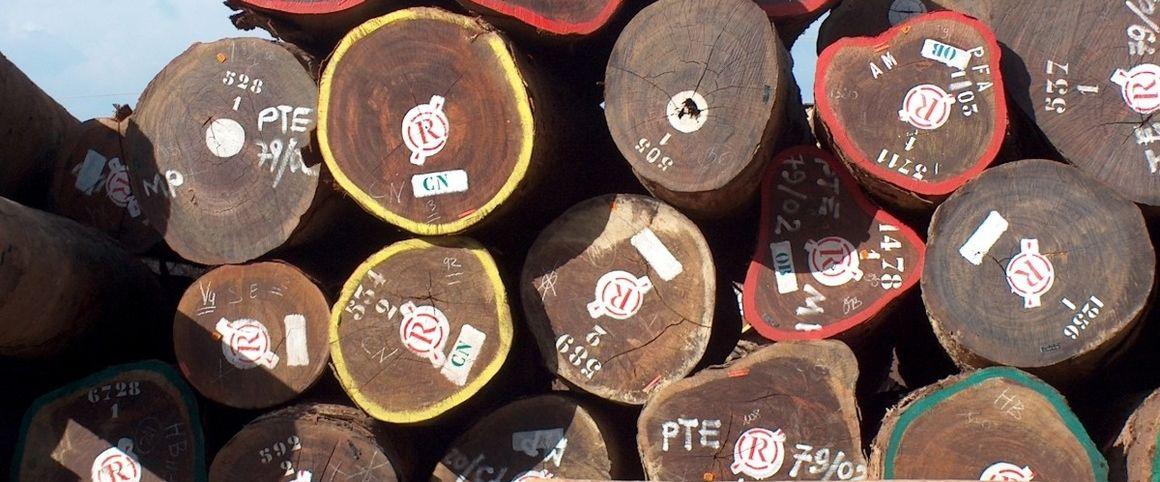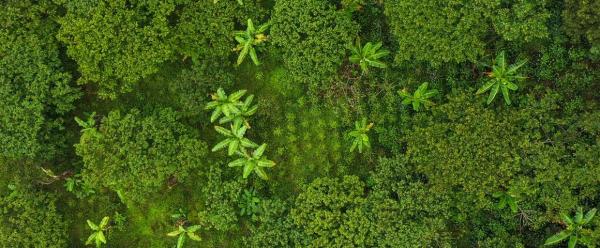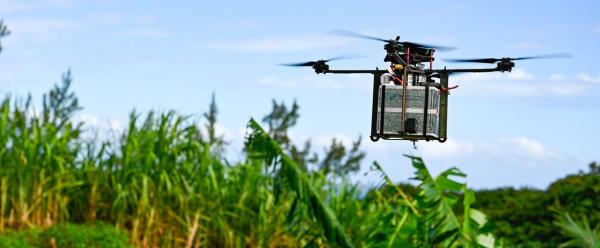Results & impact 10 October 2025
- Home
- Press area
- Press releases
- Definition of sustainable logging
Is sustainable logging really sustainable?

Log stack in Gabon © D. Louppe, CIRAD
Forestry experts from eight countries (Brazil, Canada, Colombia, France, Gabon, Guyana, Indonesia and USA) looked into the many meanings behind the use of the term "sustainability" in silviculture. Their article in PNAS Nexus encourages players in the timber sector to look again at the notion of "sustainability", failing which there is a risk of promoting practices seen as sustainable that are in fact anything but. It suggests pragmatic definitions of various types of sustainable logging and their impact in terms of both sustainable timber production and conservation of logged forests.
The logging practices whose sustainability is questioned by the authors include that of incorporating smaller, poorer quality logs in each harvest. This practice serves to maintain high timber yields with each harvest, but in the long term, it degrades the logged forests and eventually reduces the ecosystem services they provide (timber production, carbon sequestration, and services that allow the ecosystem to function and maintain its health: soil formation, water and nutrient cycles, etc.).
Accepting lower yields from the second harvest
According to the authors, sustained timber production is not possible unless we accept lower yields from the second harvest onwards. While yields stabilize after that second harvest, they will necessarily be lower than those for the first harvest from a previously un-logged forest. In the northwestern USA, for instance, logging firms attempt to maintain timber yields at 50% of the volume of the first modern industrial commercial harvest. This difference is referred to as the “primary forest premium”.
Setting forest ecosystem service maintenance targets
Only a minority of forest management systems include ecosystem service maintenance targets, in addition to timber production objectives. The target is generally 80% maintenance of those services compared to the primary forest premium.
Reducing harvest intensity and frequency
According to Plinio Sist, Head of CIRAD's Forests and Societies research unit and co-author of the study, selective logging can maintain volumetric timber yields, but only if harvest intensity and frequency are kept well below the minimum legal levels. In the Brazilian Amazon, "loggers are allowed to harvest up to 20 cubic metres of wood at 35-year intervals, whereas to maintain yields sustainably, the limit should be 10 cubic metres at 60-year intervals", he says.
Less timber in the end, if certain ecosystem services are not maintained
To make this reduction in harvests acceptable, the authors suggest that the forestry industry change tack: rather than merely harvesting timber, why not choose to take account of the ecosystem services forests provide when managing them?
Moreover, tree growth and timber yields can often be improved by means of simple silvicultural interventions such as cutting the lianas (vines) covering the crowns of growing trees (those due to be harvested next). This particular operation works for vine-encumbered trees in both Europe and the tropics, where "lianas appear to be increasing in numbers and sizes in response to disturbance and climate change".
As far as the article's authors are concerned, reconsidering the sustainability of management systems is the only way of ensuring that forests conserve their diversity and continue to provide the good and ecosystem services on which many species, including humans, depend.
Reference
Francis E Putz, Claudia Romero, Plinio Sist, Gustavo Schwartz, Ian Thompson, Anand Roopsind, Ruslandi, Vincent Medjibe, Peter Ellis. 2022. Sustained Timber Yield Claims, Considerations, and Tradeoffs for Selectively Logged Forests. PNAS Nexus.
The article's authors are affiliated to: University of Florida (USA), CIRAD (France), EMBRAPA (Brazil), Forest LLC (Canada), Conservation International (USA), Yayasan Konservasi Alam Nusantara (Indonesia), National Park Agency (Gabon) and The Nature Conservancy (USA).
PNAS Nexus is the open-access on-line journal of the US National Academy of Sciences.



























